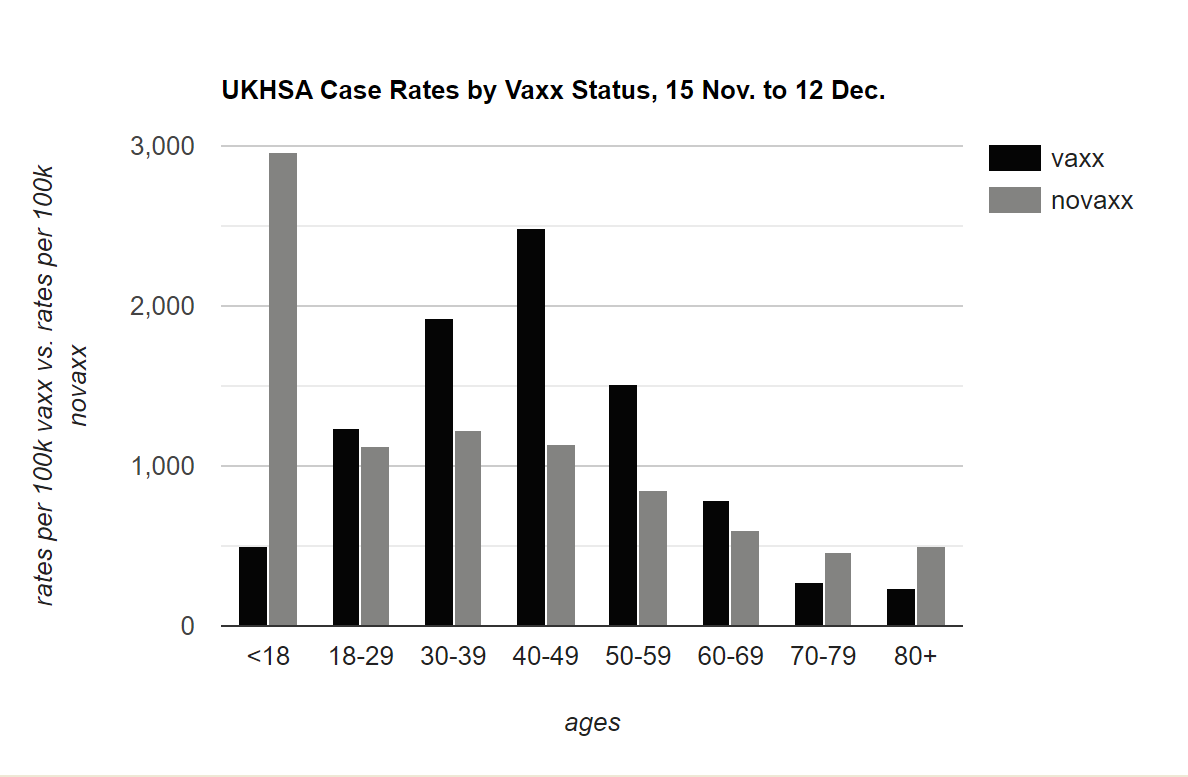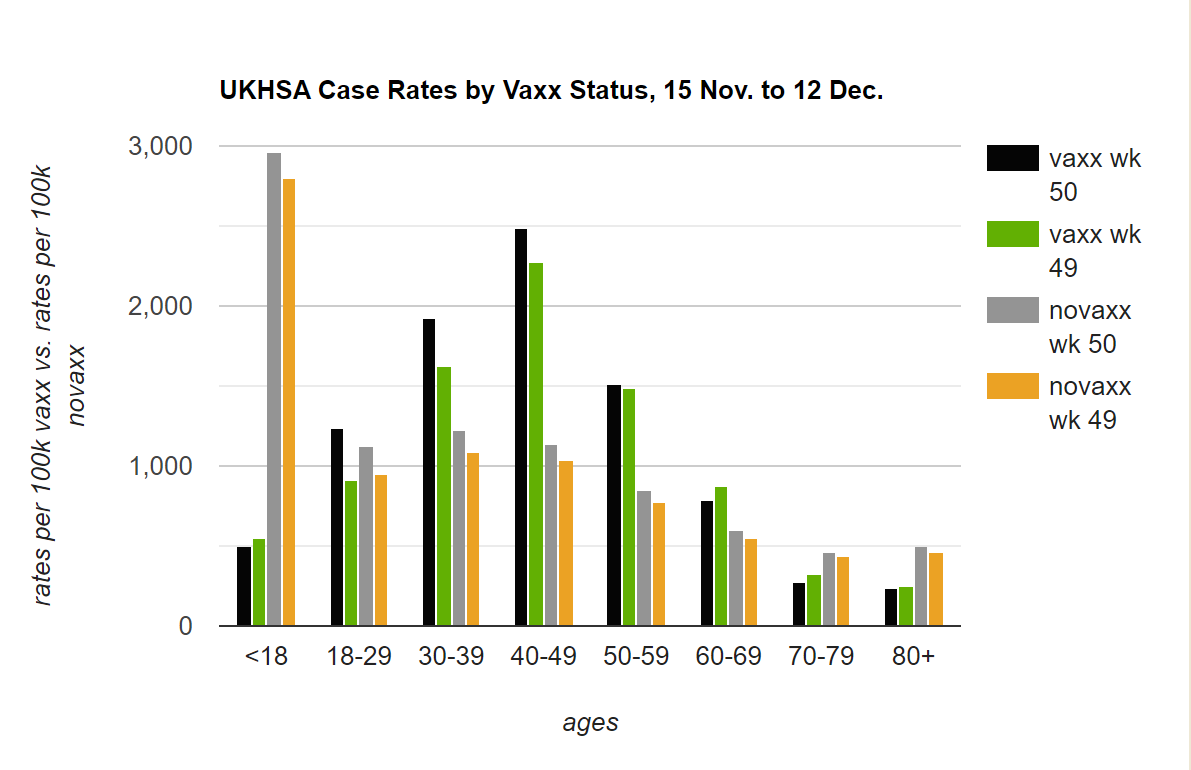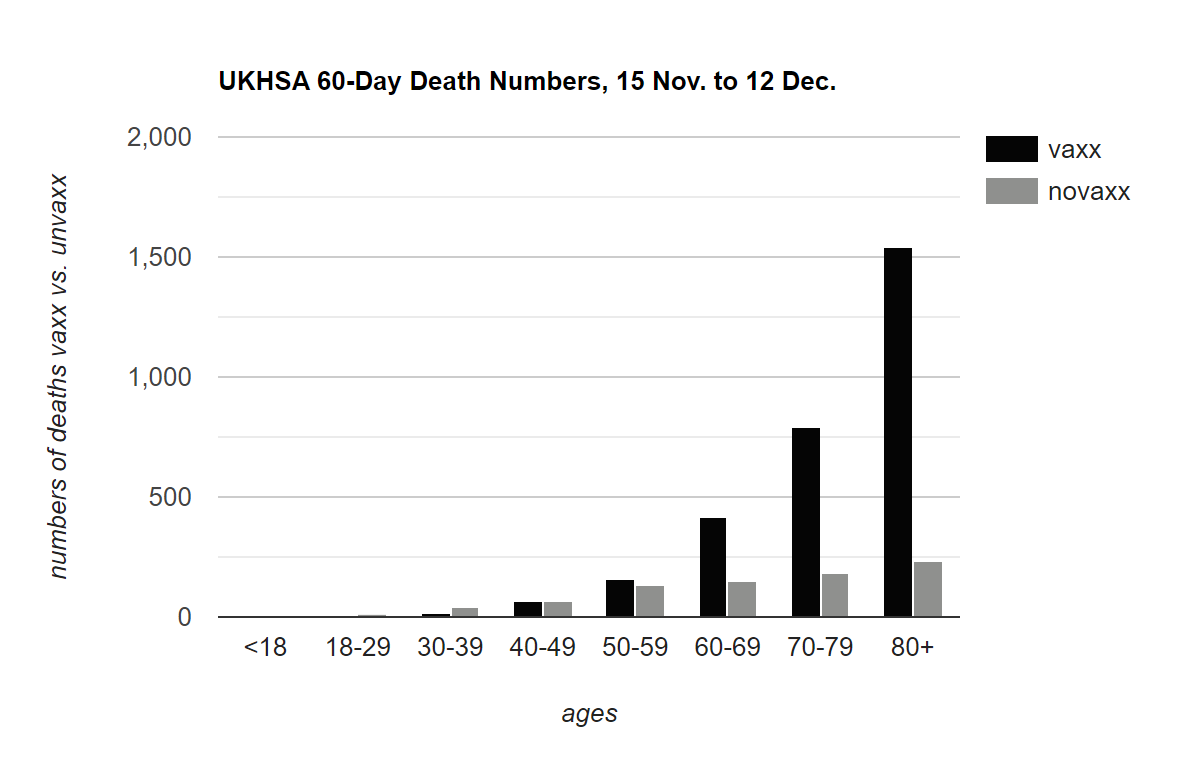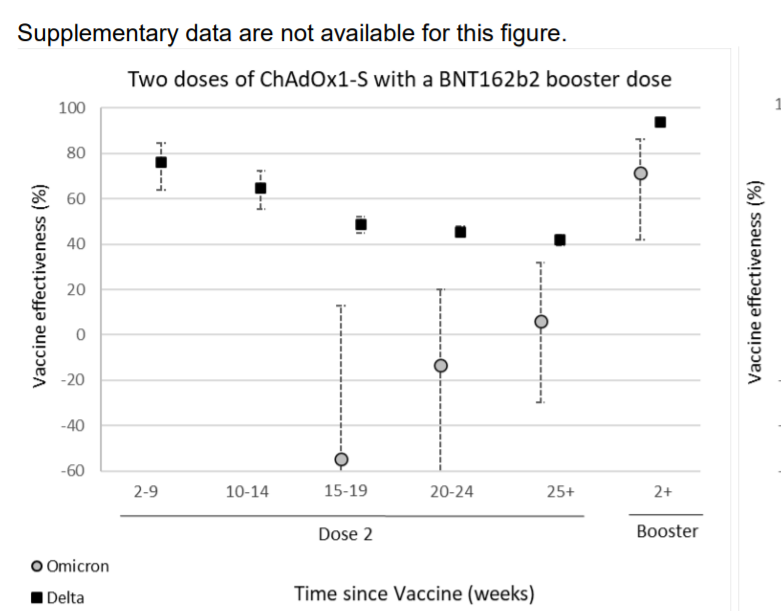From the original article on December 16, 2021. Author: eugyppius.
The UK Health Security Agency Week 50 vaccine surveillance report just dropped. The graph:

The 18- to 29-year-olds have now experienced enough antibody fade to fall into negative efficacy, like their elders before them. Comparing these numbers to the Week 49 report, we see that negative effect continues to grow among 30- and 40-year-olds, as their vaccines fade even further.

Meanwhile, those in their 60s are boosting their way ever closer to positive territory, and things continue to go better for the oldest and most heavily boosted age brackets.
Now the 60-day death rates by vaccination status …

… and the 60-day death numbers by vaccination status.

To forestall common questions about how these graphs can be so different, I quote myself from last week’s post:
[A]lmost everyone in the vulnerable age brackets in the UK is vaccinated. So you can have much higher death rates among the unvaccinated, but vastly higher death numbers among the vaccinated. Imagine an extreme world, where only one person remained unvaccinated, and he died. In that world, the unvaccinated death rate would be an astounding 100%, while all deaths but one (the vast, vast majority) would be in the vaccinated.
The Week 50 report contains a new section on “Vaccine Effectiveness Against the Omicron Variant,” where they use test-negative controls – comparing the vaccination rate among people who test positive for Corona, with the vaccination rate among people who test negative for Corona. This is a way to control for the possibility that the vaccinated may seek tests more frequently, but by the same token this opens the door to confounding by symptom severity, as people with milder illness are far less likely to seek tests in the first place.
The results for the cohort vaccinated with AstraZeneca and boosted by Pfizer are curious. First, we see that the text-negative control methodology grants AstraZeneca 40% effectiveness against Delta (black squares) even 25 weeks out:

The vaccines obviously reduce symptoms even if much other evidence suggests that they make infection more likely for the long-since vaccinated.
Look at Omicron (grey circles), though. Negative 60% efficacy 15 to 19 weeks out, improving to zero after week 25. So as the antibodies fade still further, your negative efficacy disappears? What does that sound like? Of course, there’s significant caveats here, and we can’t say anything for sure right now: The numbers are really small (hence the crazy confidence intervals – they had only 581 Omicron cases), and as the report authors note, two-dose AstraZeneca vaccinees “are likely to reflect an older population … with more co-morbidities than those given the Pfizer vaccine.”
Finally, a friend points me to the latest UK hospitalisation statistics from ICNARC. For months and months, British media have been repeating that the unvaccinated account for 75% of Corona-positive critical care admissions, a statistic from the old 6 July report. The latest numbers, current through 15 November, show that the share of unvaccinated has been declining for some time. They are now only 48% of admissions:

Library of Chadnet | wiki.chadnet.org